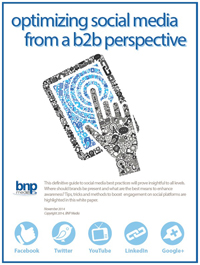Back in April 1996, I wrote in a column titled, “Regarding Women In This Field,” because I just wanted to express my frustration with the male-dominated building industry and the lack of a sufficient and equal number of women to work with. Since then, I have come back to the topic on a few occasions in this column.
Recently, someone who is very close to me commented that I seem to work with a lot of woman in this industry, and that got me thinking. First, my response to her was that at this point in my career I have managed to selectively work with only those clients I enjoy working with. That said, more than half my clients are woman, and I believe that is because I believe these specific women are very knowledgeable, good communicators, are continuously looking to learn more, and can be counted on to follow through with their job responsibilities.
So with this topic in my head, I set out to do a small, informal, and unofficial survey to be completed by several women regarding the following questions:
•Do you have a preference as to working with a man or a woman where you have an important role in the project, and if so, why that preference?
•What are a supervisor’s necessary skills and characteristics that make your job more productive and more enjoyable, and why?
•Do you have a preference whether your boss is a man or a woman, and why?
From the feedback I received, I was surprised that while women believe they have to truly prove they have the knowledge and credibility to do the job, and that women receive less money for the same work men do, the majority of those surveyed indicated they preferred their boss be a man. I’m not sure why that is, if all these great guy-bosses aren’t making sure salaries are equitable. However, the consensus was that women working for a woman can be a problem for the boss-woman. My feeling on this is that it is always tough to be the boss because you are often second-guessed by those you manage (they just may not tell you). For a woman in a leadership role, I have to believe that she had to first exceed expectations compared to a man to get into the same position. This is analogous to the baseball saying, “The tie goes to the runner … unless the runner is a woman.”
From the responses, I’ve put the following skills and characteristics in order of importance:
•Individuals must maintain good communication between project team members, as well as must maintain good communication between boss and worker(s).
•Individuals must be challenged by the project team leader, as well as by the boss on a regular basis, and this leader/boss be a great mentor.
•Individuals, as well as the boss, must stay current with the ever-changing technology and on how business is performed.
Only one woman noted a characteristic that I believe, as someone who has been a boss, is critical to an individual’s success, whether working on a project or as the boss: The person in question must know when and how to delegate and do so with confidence. No one person can do it all, so being able to delegate is critical to a successful project and/or managing people. Now look around your office and see how many women are busy at work and in responsible charge.
In sync with The One Minute Manager by Blanchard and Johnson, catching someone doing something right is critical to the workplace environment. Several of the women surveyed indicated the following:
• Recognize positive results
• Praise when due
• Provide constructive criticism
• Address negative issues
While I have worked with and managed numerous men over the past 45 years, I still can’t figure out how we men cannot see the value of women in the workforce. For me, every woman I worked with on projects, as well as managed during my career, has met her job commitments; most have exceeded my expectations when it came to completing a job. Each individual has delivered on such topics as providing a creative solution to a problem, providing a time-managed response that surpassed my 24-hr meeting minutes rule, and providing a better engineered solution that what I would have considered.
I find an intensity among women working in the building industry that men don’t have, and this is probably due to the fact that many women believe they must establish their presence. To this point, I say actions speak louder than words, and so I gauge an individual’s performance including skill level, commitment, ability to communicate to others, and the ability to be profitable. Regarding these characteristics/traits, I simply find the majority of women speak through their actions, while men tend to talk a lot without delivering through action. ES







